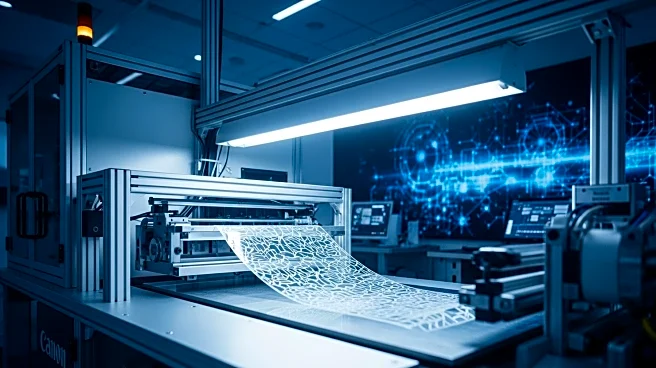What is the story about?
What's Happening?
Asahi Kasei has announced plans to double the production capacity of its PIMEL™ photosensitive polyimide (PSPI) at its Fuji City facility in Shizuoka Prefecture, Japan, by 2030. This material is crucial for the global electronics industry, particularly in semiconductor applications such as buffer coatings and passivation layers. The expansion is in response to the growing demand for semiconductor materials, driven by advancements in generative AI and other technologies. Asahi Kasei will invest approximately ¥16 billion in this expansion, aiming to enhance supply resilience and maintain its position as a key supplier in the semiconductor industry.
Why It's Important?
The expansion of PIMEL™ production is significant due to the increasing demand for semiconductor materials, which are essential for the development of advanced technologies like generative AI. As the global semiconductor industry is projected to surpass US$1 trillion in revenue by the mid-2030s, Asahi Kasei's investment positions the company to capture growth opportunities and reinforce its role as a reliable partner to semiconductor manufacturers. This move supports the company's strategy to build long-term value in high-growth sectors, contributing to the resilience of the semiconductor supply chain.
What's Next?
Asahi Kasei's expansion plan is expected to be completed by 2030, with the company continuing to invest in its electronics business, categorized as a 'First Priority' for future growth. The company aims to leverage its enhanced production capacity to meet the rising demand for semiconductor materials, driven by technological advancements. Stakeholders in the semiconductor industry may anticipate improved supply chain stability and increased availability of essential materials for next-generation technologies.
Beyond the Headlines
The expansion reflects broader trends in the semiconductor industry, where companies are investing heavily to meet the demands of emerging technologies. Asahi Kasei's commitment to sustainability and carbon neutrality by 2050 also highlights the industry's shift towards environmentally responsible practices. The company's recognition by TSMC for its technology collaboration underscores its role in advancing semiconductor manufacturing processes.
















